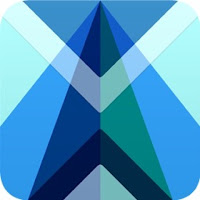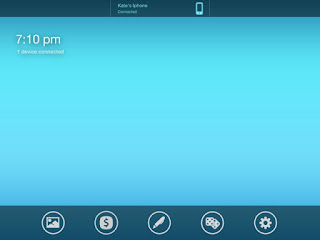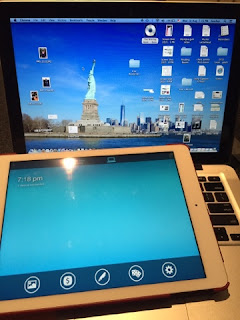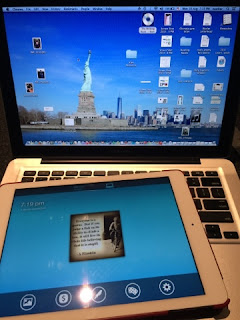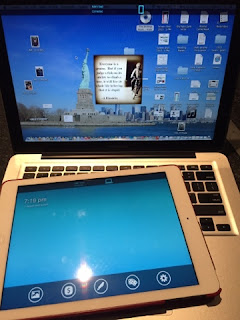Day 1
Guest speaker: Grant Lichtman
- Teachers don't need to provide/transfer knowledge anymore, thats what the internet is for!
- The world is not divided into subject areas.
- We need to teach our students how to embrace failure
- As teachers we cannot be innovative without taking risks
- There is a feeling that we must make a choice between choice, innovation and experiences, and standardised testing. How can we get a balance?
- Change in schools is uncomfortable, not hard; get comfortable with discomfort.
- Lead from where you are, teachers in the classroom can make change, not just school leadership
Questions
- How could we get away from teaching 'subject areas' while still providing our students with the basic skills such as learning to read? All very well doing integration but how many books are available at a suitable reading level for our struggling readers. How can this be done without causing an overload of prep time from the teacher?
- How do we get a balance between creating, real word experiences and our requirements such as National Standards?
Now what...
- Have more discussions with my students about their learning process eg, what did you learn about how you learn best? What happened when this didn't work? What will you do next time?
- Carry on implementing new ideas and take more risks of my own
Workshop 1 - GAFE in an ILE, PDQ!
Presenters - Diana Wilkes and Caroline Bush from Ormiston Primary
- Not just about preparing children for their future, aims is to create learners that are successful in our time.
- Four levels of independence when learning
- Power of Narrative assessment, making these more important than reports - 3 narratives per term, per child
- Using twitter as part of planning and evidence of learning
- Children find evidence in regards to learning progressions and put this on their blogs with links made by teacher to National Standards
Questions
- Could following our learners assist in developing good learning relationships? Not having to get to know a new group of students each year.
- What is the point of end of year written reports? Would using learning stories be more beneficial and meaningful to parents?
- How can we engage our parents more? Would be great to see more parents commenting on our blog
Now what...
- Think more about the idea of best reporting methods, discussion with Gary and Simon
- Organise another techy breaky for Term 4
- Look at ways Ormiston school organise their planning
- Explore 4 levels of independence and how this could be incorporated into literacy
Workshop 2 - Agency and ownership: Why the how?
Steve Mouldey, Hobsonville Point High School
- Curiosity enables student to find their own learning path
- Questioning is the number one thing to assist in own learning and engagement
- teaching children to use a critical eye to refine questions
- The what are you learning is more important than simply the content
- Seperate inquiry away from research
- The choice - co-design continuum - teacher controlled - student choice - student voice - co-design
- Feedback quality may have more impact on student achievement than any other factor
- Rose, bud, thorn feedback model
Questions
- What are the concept skills that we want our students to develop?
- How can we use student voice more in our planning?
Now what...
- Set up a wondering wall and curiosity table in the classroom
- Work on developing question skills in the classroom, use question scaffold as a tool
- Make self and peer assessment a key concept in Term 4


